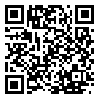BibTeX | RIS | EndNote | Medlars | ProCite | Reference Manager | RefWorks
Send citation to:
URL: http://journal.bums.ac.ir/article-1-659-en.html
Background and Aim: Caring for patients with multiple sclerosis brings about a lot of tension for the care-givers and the family. Implementation of an empowerment program leads to self-control and preventive behaviors. This study aimed at determining the effects of a family-centered empowerment model on knowledge, attitude and skill of care givers of multiple sclerotic patients.
Materials and Methods: This clinical-trial study was done on 70 care givers of multiple sclerotic patients who were divided into case and control groups. Family-centered empowerment model was applied for three months and then the questionnaires regarding skill, attitude, and knowledge of the participants were collected. The obtained data was analyzed by means of SPSS software (version 11.5) and dedicational statistical tests at the significant level of P<0.05.
Results: Independent T-test revealed that there was no significant difference in the mean knowledge, attitude, and skill scores in the case and control groups before intervention (P>0.05) whereas the difference was significant three months after intervention (P=0.001). Besides, mean knowledge, attitude and skill scores of the caregivers in the case group significantly increased three months after intervention (P=0.001), but there was no significant difference in the mentioned factors in the care-givers of control group after three months (P>0.05).
Conclusion: Empowerment of caregivers for patients with multiple sclerosis promotes their knowledge, attitude and skills leading to more efficient care for these patients. Planning and implementing more effective programs for those caring for chronic diseases is recommended.
Received: 2010/07/3 | Accepted: 2016/03/10 | ePublished: 2016/03/10
| Rights and permissions | |
 |
This work is licensed under a Creative Commons Attribution-NonCommercial 4.0 International License. |





